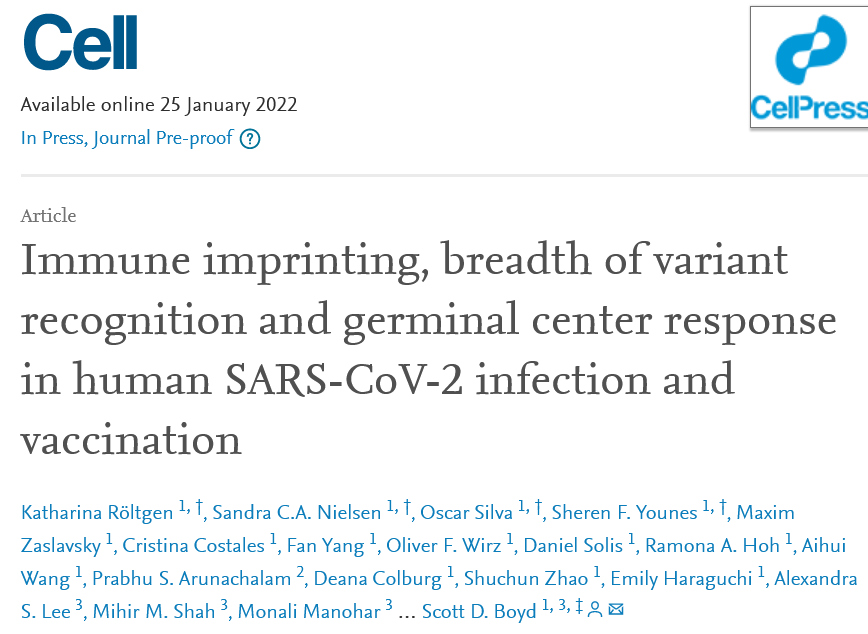
Highlights
- • Vaccination confers broader IgG binding of variant RBDs than SARS-CoV-2 infection
- • Imprinting from initial antigen exposures alters IgG responses to viral variants
- • Histology of mRNA vaccinee lymph nodes shows abundant germinal centers
- • Vaccine spike antigen and mRNA persist for weeks in lymph node germinal centers
Summary
During the SARS-CoV-2 pandemic, novel and traditional vaccine strategies have been deployed globally. We investigated whether antibodies stimulated by mRNA vaccination (BNT162b2), including 3rd dose boosting, differ from those generated by infection or adenoviral (ChAdOx1-S and Gam-COVID-Vac) or inactivated viral (BBIBP-CorV) vaccines. We analyzed human lymph nodes after infection or mRNA vaccination for correlates of serological differences. Antibody breadth against viral variants is less after infection compared to all vaccines evaluated, but improves over several months. Viral variant infection elicits variant-specific antibodies, but prior mRNA vaccination imprints serological responses toward Wuhan-Hu-1 rather than variant antigens. In contrast to disrupted germinal centers (GCs) in lymph nodes during infection, mRNA vaccination stimulates robust GCs containing vaccine mRNA and spike antigen up to 8 weeks post-vaccination in some cases. SARS-CoV-2 antibody specificity, breadth and maturation are affected by imprinting from exposure history, and distinct histological and antigenic contexts in infection compared to vaccination. CONTINUE READING >>>





